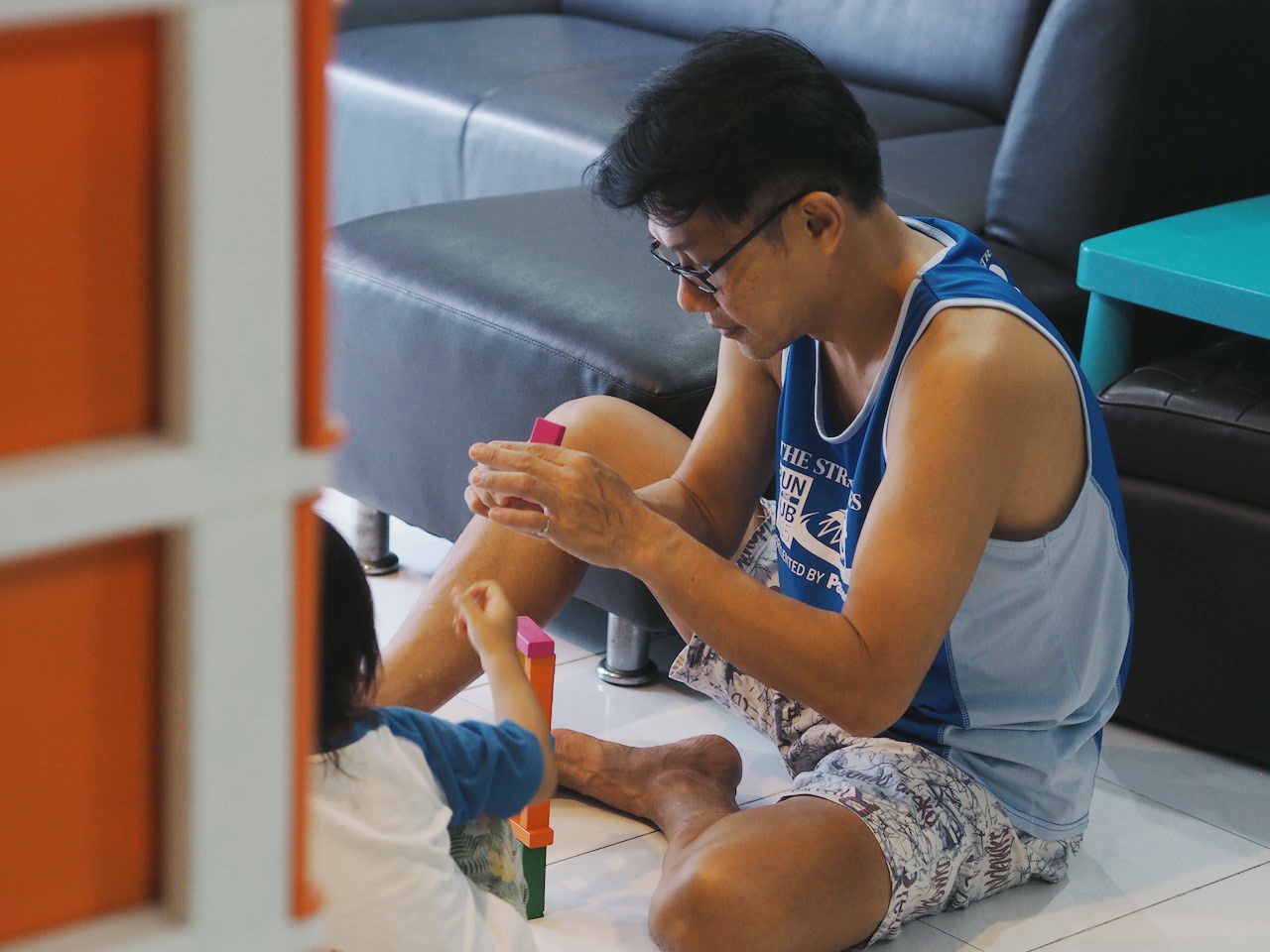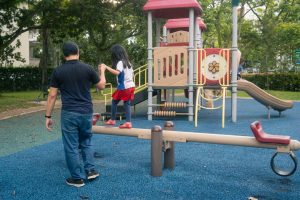As a reporter, I’m used to asking difficult questions, not being asked them.
But after entertaining five-year-old Ronzo Low by building and breaking a Jenga tower several times over, he sets his bricks down and looks up at me with a curious smile.
“Is it you know me when I’m young?” he asks, wondering why a strange woman he has never met in his life has just spent an hour playing with him.
His question isn’t totally surprising, but what catches me off guard is the hint of cautiousness in his tone—like he’d spent the entire playdate waiting for that precise moment to broach the question, as though he were afraid of what my answer might be.
I swallow the knot in my throat; I don’t know how to give him an adequate answer. To be frank, I’m unsure he even understands the gravity of his innocent query.
So I plaster on a reassuring smile and look him in the eye.
“No, no, I didn’t know you when you’re young.”
I hope I sound firm enough to quell his doubts, but almost instantly, I can tell by the slight tilt of his head and how his smile freezes just a millisecond too long that I haven’t given him the answer he’s looking for.
How do I tell a five-year-old that I am in his home because his dad, Ronald Low, made the papers after his wife (Ronzo’s mom) was killed in a bus collision near his home two years ago?
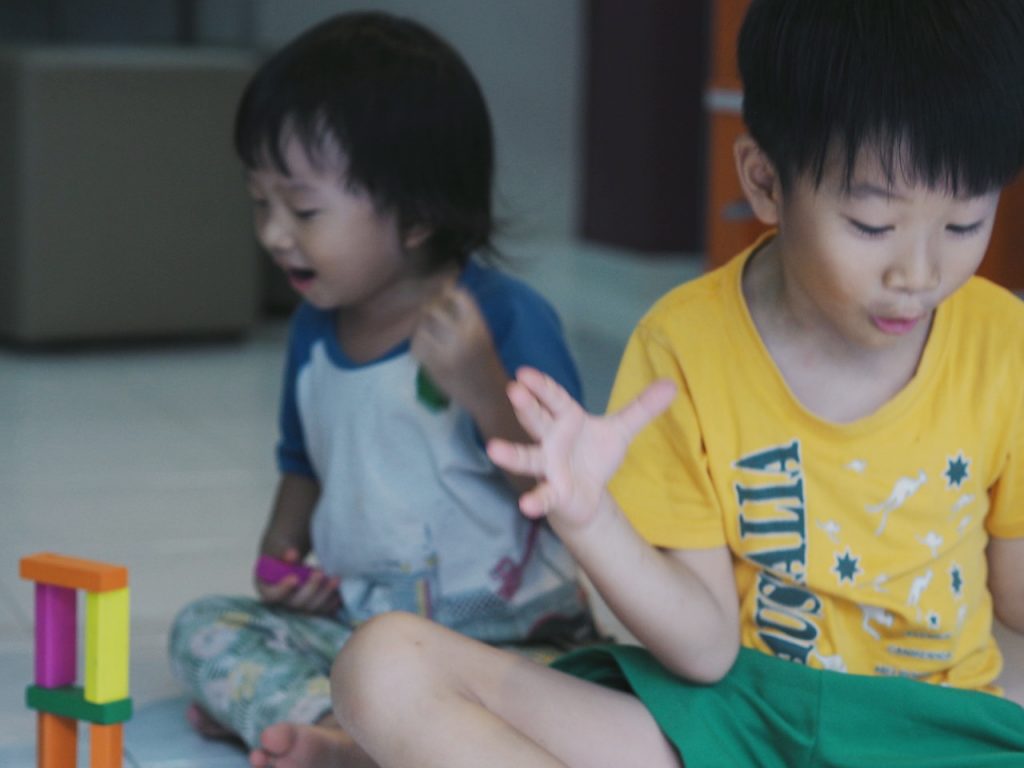
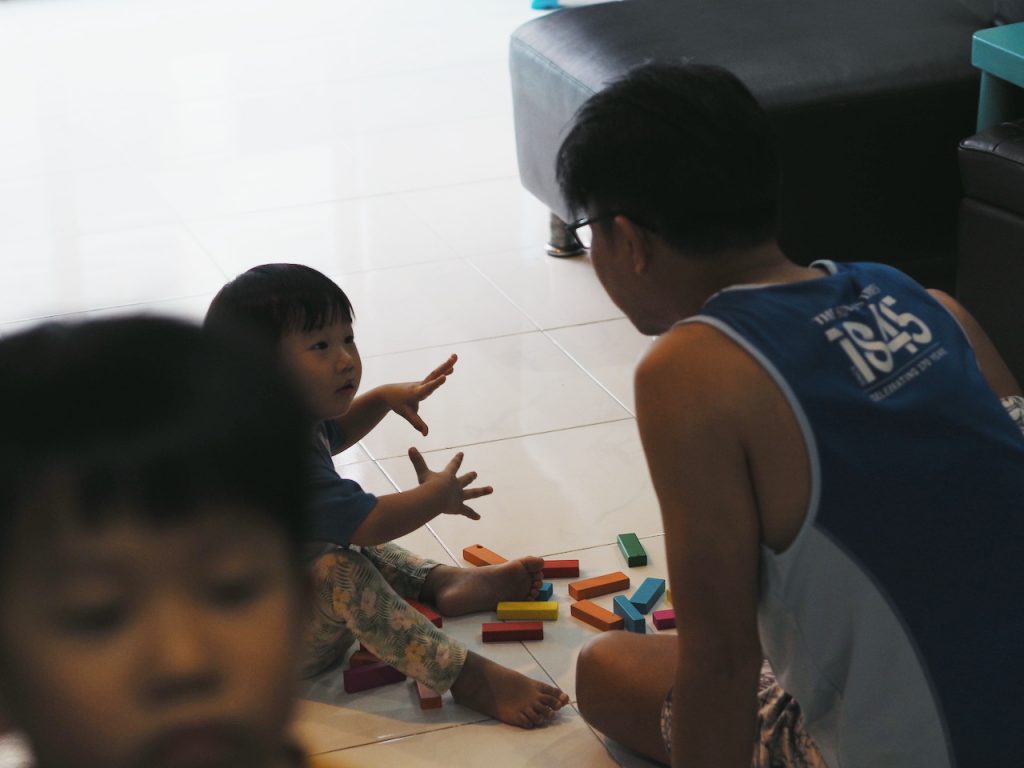
It’s possibly worse when you’re “something like an orphan” without help from family to take care of your two sons, who themselves are too young to understand death.
Ronald himself was raised by his grandmother, after his mom left the family and his dad remarried when he was young. After his wife’s fatal accident, he became the sole caregiver of his two sons, Renzo and Ronzo (aged one and four respectively then). Approached by one of his distant relatives, he was offered their house for his sons while he got back on his feet.
After the following three months, he realised his sons weren’t very happy living away from their home, so he took them back with him.
The hardest part of being a widower and ‘orphan’ was, in fact, having to face the possibility that his children might walk a similar path (i.e. one without their parents).
“When my wife passed, Ronzo was only four and my younger boy, Renzo, was barely one. The older one didn’t know what was happening, only that his mom was ‘lying there’. A few months later, he realised mom wasn’t around. From then, there was a sadness from him. Deep in his heart, he’s still trying to figure out how he feels,” he explains.
“Even during Mother’s Day, he asks why mommy’s not here, why she’s in heaven. He says, ‘I wish mommy could come back. Why God cannot make her come back?’”
Occasionally, the 49-year-old tells me, Ronzo would ask unusually pointed and uncomfortable questions that demonstrate a growing awareness about the permanent absence of his mom. But Ronald has to deal with his own continuous grieving process too, including coming to terms with ‘losing’ even more in his wife’s absence.
So, like me, he does his best to placate Ronzo with an answer that the five-year-old is ready to handle for now.
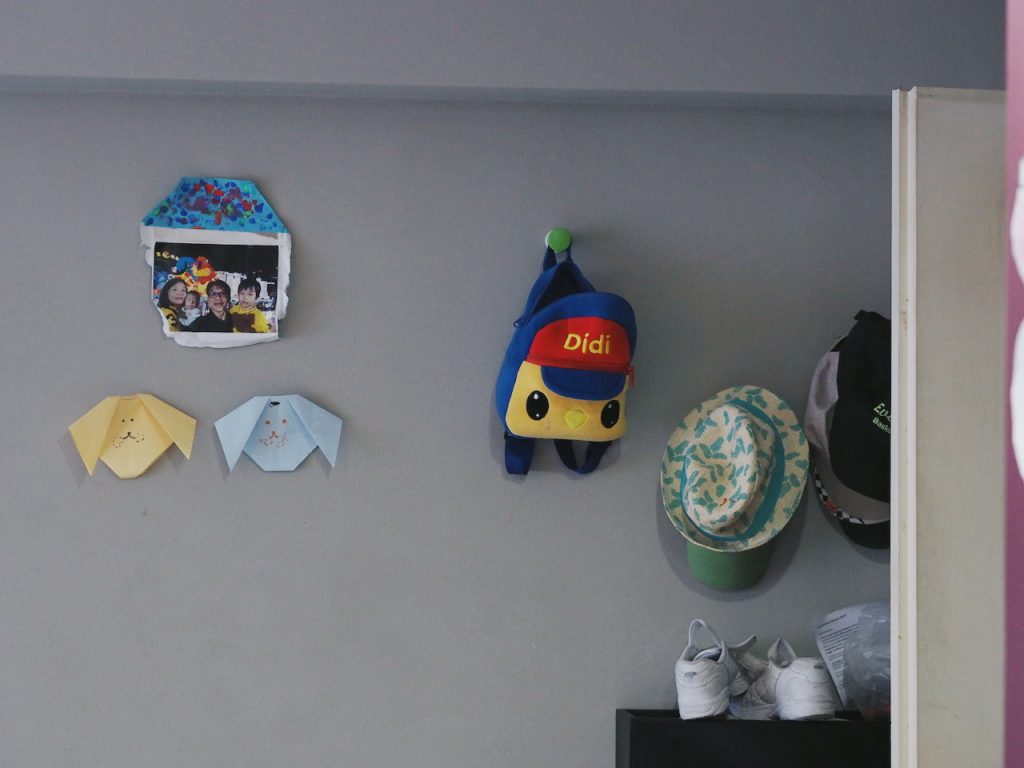
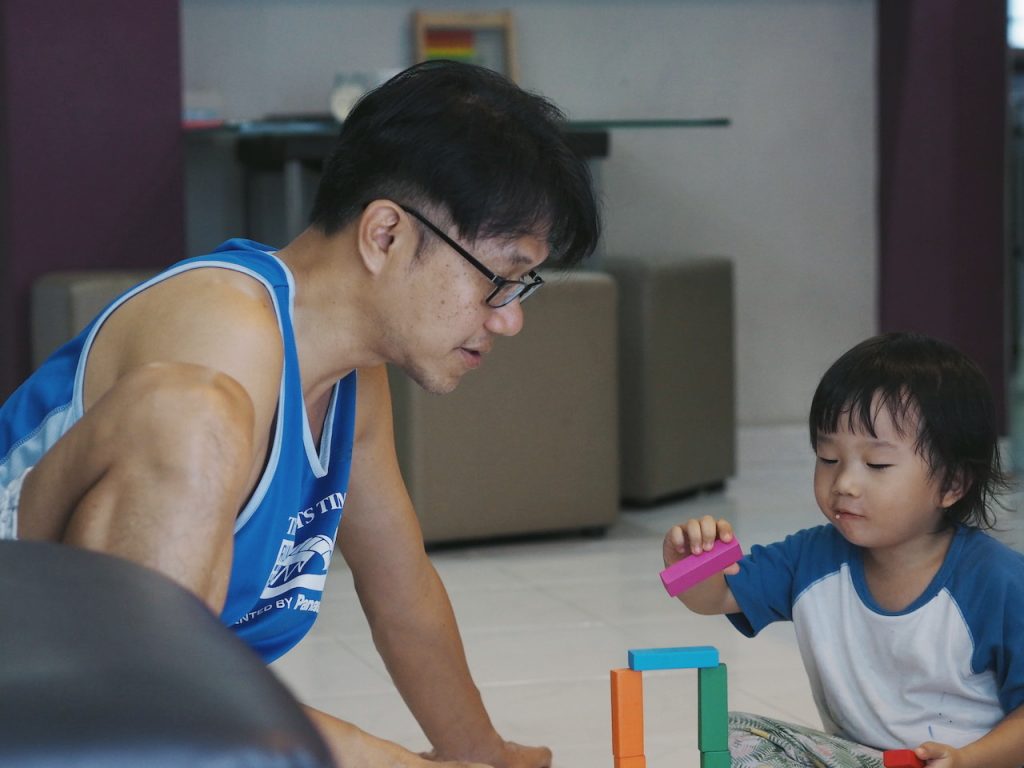
A few months ago, he also had to abort a major plan they once made as a couple: they’d secured a BTO in Bidadari, so his sons could attend Maris Stella Primary School (his alma mater) nearby. After losing his wife, he decided not to move out of his current home in Anchorvale; HDB also accepted his cancellation for the flat.
Right now, a month ahead of Primary One registration, all he wants is for Ronzo to get into Nan Chiau Primary School next year. The school is near his home and “on the same level” as Maris Stella.
Like any other parent, he faces typical balloting woes and the stress of starting one’s kid off in the ‘right’ school, although these struggles are admittedly exacerbated without his wife to shoulder part of the burden.
“I don’t know if I should take a risk and ballot for Nan Chiau, instead of any of the other primary schools around my area with a much higher chance of getting in. If my son doesn’t get in, I’d have to let MOE draw lots and ‘throw’ us somewhere,” he says.
Since his wife’s death, Ronald’s had to rearrange his regular priorities to deal with practical concerns. Although finances are thankfully not too tight, he can no longer hang out with friends on a whim. Daily habits, such as his exercise time, have also been cut to spend time with his sons.
With a helper to assist with his two boys since his wife’s passing, Ronald is able to divide the household chores between them. For instance, they take turns to handle buying groceries and cooking. On his helper’s day off, she’d also occasionally take one of the boys with her to meet her friends, leaving Ronald with sufficient time and attention for his other son.
Because of his reliance on her to get by, he admits he needs to consider her feelings and boost her morale from time to time as well.
“My helper is not a machine. I pray she is stable, because if she’s not stable, I won’t be stable,” he says.
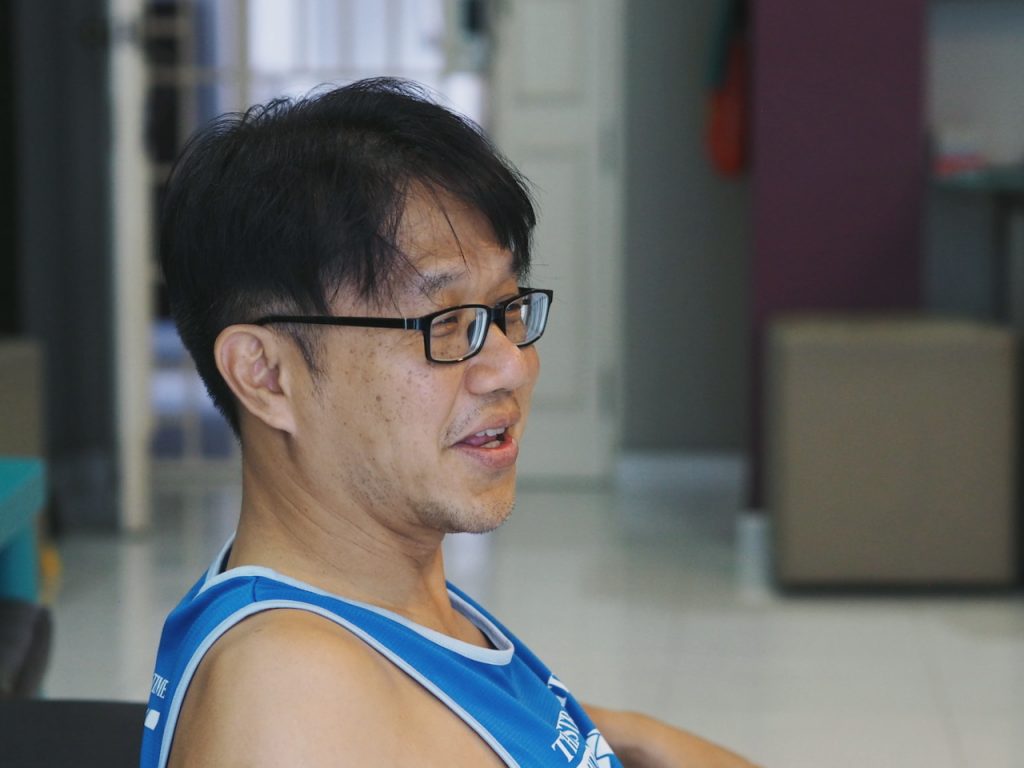
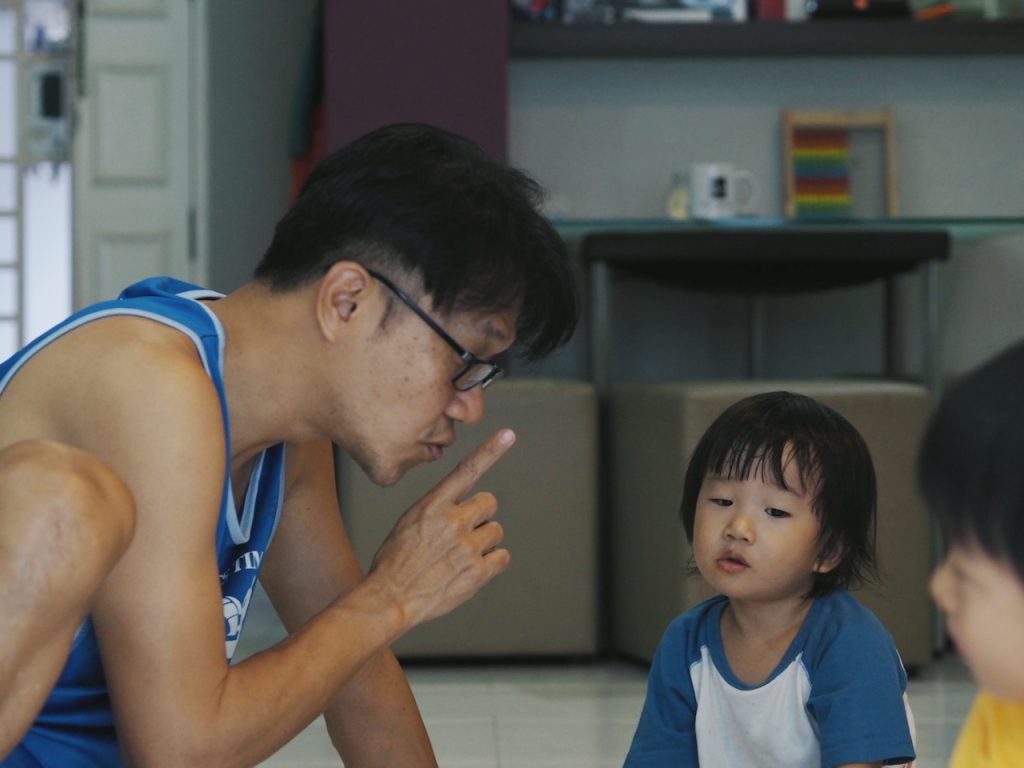
On the other hand, men “don’t do it”. It is just not a thing, apparently, to chit chat and talk to each other about their problems.
“My friends knew I was a widower. But probably because of our culture, many Singaporeans (even myself, I admit) don’t know how to handle situations like this. Till this date, none of my colleagues have dared to touch on this subject at all,” he explains.
Even so, he was advised not to shut himself out, though trite advice can occasionally have the opposite intended effect.
“People told me to go look for community, but it’s easier said than done. Do I knock on everybody’s door? Who’s going to care about me? Who is going to reach out to me? Everyone’s got their own problems,” he says.
Ironically, if his wife’s case hadn’t made national headlines, he might have closed himself off, and may not have gotten as much emotional support as he needed.
“During the court hearing [for the driver who killed my wife], the news was picked up by HCSA Dayspring SPIN, who reached out to me. I suppose they wouldn’t have come to me if the Straits Times hadn’t continued to follow up with me after my wife’s funeral,” he says.
Besides SPIN, Ronald also found unexpected support in the moms at Ronzo’s kindergarten and at Sengkang Methodist Church near his home, where he met a fellow widower.
Though Ronald admits he was never religious despite being brought up Christian, he constantly alludes to the presence of God in his life by saying, “Thank God”, every time he describes the blessings he’s received since his wife’s passing. Even the walls of his simple four-room flat are dotted with hand-drawn crosses by his sons, a framed Bible verse next to a family portrait that includes his wife, or posters with Christian values.
As a result of his newfound community and faith, he was able to “be stable again in such a short time”—something he never thought possible at the start.
“I hear many people in my position take a longer time, so I find it amazing that it took me less than a year. I believe if you spoke to me nine months ago, my tears may come down while I’m talking to you,” he shares.
While he may not exactly be brimming with infectious glee, his stoicism belies the quiet strength of someone who has allowed hardship to make him better, not bitter. There is no self-pity, but a necessary kindness he has learnt to give himself.
“If you can mentally conquer hardship, then it’s about staying positive. Of course, I’m also very lucky that my friends I count on for support stay around my area,” he says.

In fact, friends celebrate both occasions for him, though the last two years have felt starkly different.
“On Mother’s Day this year, I went to church. From the time the first hymn started playing, I almost wept till the end of the sermon. But unlike last year’s Mother’s Day, these tears were not a bad feeling,” he shares, suggesting that he’d finally found a semblance of closure.
“It’s just like the holy spirit washing over me.”
Still, Ronald believes the toughest challenge of being a widower is one he hasn’t quite figured out how to overcome. According to him, he doesn’t have the “gentleness” required to handle two boys—a quality that he believes moms inherently do better at.
“As a guy, I believe no matter how gentle you hug them, you can never be as gentle as a mom. Your tone of voice can never be as ‘smooth’. The ‘creativeness’ of handling a kid is not as good as a lady. That part I’m struggling with now,” he says.
“How much control should I exert, especially when my kids throw tantrums? I lose my quality time with them, but because they’re not at the age where you can reason with them yet, they will throw a tantrum again the next day. If I had a partner with me, I could team up and get things done faster.”
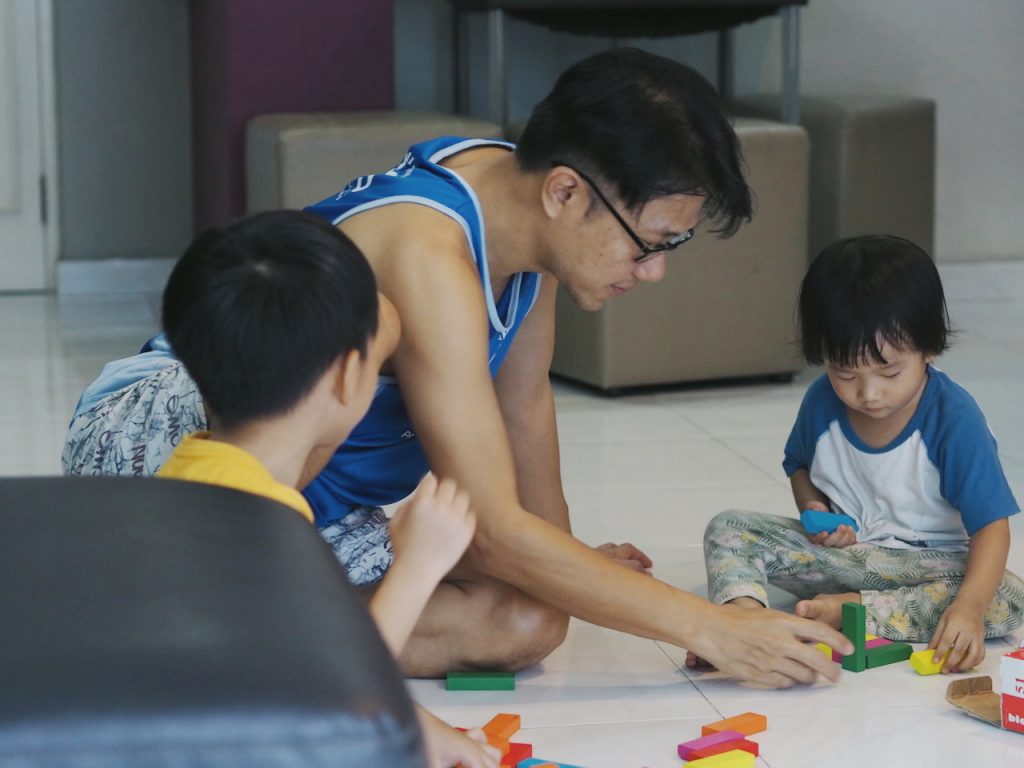

Yet, when Ronald decides to ask Renzo to give kor kor his bricks, and promises Renzo he’d give him other toys to play, Ronzo’s face instantly crumples.
“Don’t! Don’t give him!” he shouts, pouncing onto his dad’s lap. Ronzo folds his arms tightly around his dad’s body, preventing his dad from handing his younger brother another toy.
The point of ‘bullying’ his younger brother, after all, was never about restricting his younger brother from playing with the bricks.
It is—and always has been—about getting his dad’s attention.
In response, Ronald lets out a quiet sigh, then agrees he won’t give Renzo a new toy. Ronzo’s face lights up; he has gotten a sign that dad loves him.
Ronald looks at me, smiles wryly, and shrugs, as if he’s resigned to never fully knowing how to handle his boys.
“You see what I mean?”
And this is what I see: in the corner of the living room, a happy family portrait that includes Ronald’s wife. In front of me, a widower doing his best to pick up for his sons the pieces of his life and a pile of coloured bricks strewn haphazardly across the floor. To my right, a boisterous five-year-old who seems to have feelings more acute than he can yet put into words.
In the one hour I spend with the Lows, I see a life of normalcy split—and rebuilt—by tragedy into what once was and what now is.

